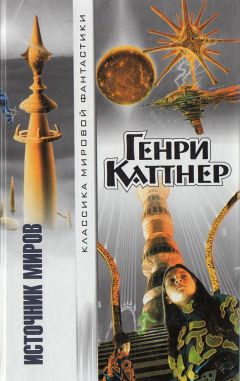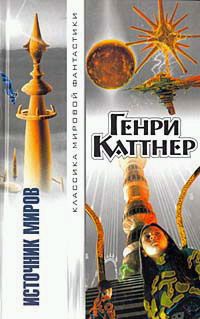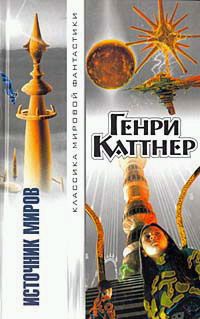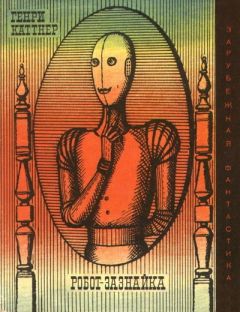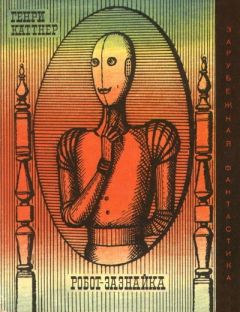Nancy - The Islands of the Blessed
“Keep that behemoth away from me,” the Nemesis said as they entered.
“Now, now, you could easily spare him a toe,” the Bugaboo said. “It isn’t as though it wouldn’t grow back.”
Jack put Seafarer in the alcove and sat next to the fire with the others. The Bard had already recounted the story of the draugr, leaving out the grimmer parts because Hazel was listening.
“We’ve come across a draugr or two in our travels,” said the Nemesis. “Jenny Greenteeth, for example. There’s someone you don’t want to find at the foot of your bed. Do you remember that night we camped in the Hall of Wraiths?”
“Oh, my!” The Bugaboo’s eyes bulged at the memory. “A deer would have had trouble keeping up with us after she appeared—but we mustn’t get bogged down in old tales. My dear Dragon Tongue, do you think it’s safe to lure the sea hag away? You have to keep several hops ahead of something like that.”
“Of course it isn’t safe,” the Bard said, stirring the embers of the fire with his staff. Jack had often noticed that it never burned, no matter how long the old man poked around with it. “I can’t leave her here. She’ll become a permanent resident, like Jenny in the Hall of Wraiths. Jenny’s grievance happened so long ago that she can’t remember what it was. If you don’t fix wrongs in time, they never go away.”
“Well, you can’t have a draugr trailing after you forever.”
“No,” said the Bard thoughtfully, stirring the flames. “Everything depends on what fate has in store for Severus. He isn’t a bad man, you know, just an incredibly pig-headed, narrow-minded idiot. He feels guilty.”
“Fat lot of good that does,” said the Nemesis.
“He won’t escape punishment, but it will probably take the form of some penance. I doubt whether the draugr will be satisfied with anything less than his death.”
“What happens if she isn’t satisfied?” demanded the Nemesis.
The Bard’s eyes looked into the distance, seeing beyond the wall to someplace Jack could only guess at. “Then… I suppose… I must find another solution.”
All this while Seafarer had been talking to himself. Jack had noticed that the albatross liked to join conversations. They must have reminded him of the sounds a flock made when birds nested together. Seafarer clicked, whistled, snapped his beak, and moaned, for all the world like someone offering an opinion. Hazel had been growing steadily more restless. She was irresistibly drawn to the dangerous bird and more than once had to be kept from pulling his feathers.
Now she wriggled off Blewit’s lap and made a beeline for the alcove. Blewit caught her just in time. “Let’s go down to the beach, dearest, and see if your old da can snag a fish,” he whispered. She nodded happily and waggled her stubby toes in imitation of his long ones. Jack was relieved when they left.
“Excuse me for interrupting, sir,” he said, anxious to take advantage of Blewit’s absence. “I need to ask whether Hazel is here permanently.”
“No!” cried the Nemesis before the Bard could respond.
“He’s right. It would kill the Blewits to give her up,” the Bugaboo said. “And anyone can see that tearing Hazel away from them would cause her untold harm.”
Jack bowed his head. He didn’t know what to say.
“I know we’re responsible for the problem,” said the hobgoblin king. “I’ll do everything in my power to solve it. We’ll visit every summer and give Hazel a chance to know her human family.”
“Why not stay all the time?” Jack said.
The Bugaboo and the Nemesis exchanged glances. They seemed reluctant to answer.
“Because the villagers would mistake them for demons,” the Bard said. “It’s foolishness, of course—no one is more kindhearted than hobgoblins—but old habits die hard. We can’t even admit that Hazel was raised by them. She’ll have a hard enough time fitting in.”
“There’s also—you know,” the Bugaboo said hesitantly.
“What?” said Jack.
“Getting mudstruck.” The hobgoblin king whispered as though it were a shameful secret.
Jack looked to the Bard for explanation.
“Hobgoblins are irresistibly drawn to humans, or as they put it, mud people,” the old man said. “From the first minute they saw us, hobgoblins fell in love. You’ve seen how they copy our houses and clothes. The trouble is, if they stay around us too long, they can’t bring themselves to return home. It’s a kind of addiction, like the craving for strong drink among Northmen.”
“Many a Christian house has its resident hobgoblin,” the Bugaboo said sadly. “He watches over the family and secretly does small chores, like cleaning out the fireplace or rocking the baby’s cradle. Gradually, he wastes away out of loneliness. He’s never appreciated, though he would give his life for his humans. If he’s discovered, he’s pelted with rocks.”
“So that’s being mudstruck,” murmured Jack.
“Please! We don’t use the word in polite company,” the Nemesis growled.
“And now it’s time for me to introduce the child to her real parents,” the Bard said, standing and brushing a few flecks of ash from his robe. “Jack and Thorgil will accompany me. You hobgoblins can stay here, if you wish.”
“Blewit would never let his darling out of his sight,” said the Bugaboo. “He’ll insist on following, and we, of course, must support him. But never fear. No human ever sees us when we want to remain hidden.”
Chapter Eleven
HAZEL COMES HOME
Hidden they were, from farmers planting fields and from John the Fletcher hunting for the draugr that had killed his hens. None of the women traveling to the baker’s house, from which the warm smell of bread radiated, saw the hobgoblins. Not one of the boys playing Bull in the Barn noticed the speckled shapes flitting from shadow to shadow. Of course, the motley wool cloaks helped, but even without such cover, the hobgoblins blended into the background with remarkable ease. Jack could detect them because he knew what to look for.
Everyone noticed Hazel. How could they not, Jack thought miserably. She puffed out her cheeks and wiggled her ears with glee. This was a grand adventure! She was seeing more mud people than she had ever dreamed possible and thought they were pleased with her as well. They raised their eyebrows and opened their mouths into an O, exactly like a hobgoblin when he was happy.
“Who is this lassie?” inquired a farm wife, after watching Hazel snap at a butterfly.
“Jack’s relative from the north,” the Bard said blandly. “His great-aunt’s brother’s granddaughter. Doesn’t she look exactly like Giles Crookleg?”
“Why… yes,” said the woman, trying to work out the relationship.
“We’ll have to teach her manners,” hissed Jack when they were alone again. Hazel was hopping down the road. She did it extremely well, aided by her sturdy legs and lots of practice. “Everyone will think she’s demented.”
“I disagree,” Thorgil said unexpectedly. “Everyone will think she’s simply playing. She’s no different than a puppy trying out its paws.”
“Very wise, shield maiden,” the Bard said.
If the hobgoblins were invisible to people, the animals could certainly see them. There was much baaing and bellowing as black-faced sheep scurried out of their way. A cat arched its back and spat when the Nemesis grinned at it. Chickens fled in panic when Mr. Blewit’s long, unhappy face peered out of a gooseberry bush.
They arrived at the path leading to Jack’s farm, and he unconsciously slowed down. Now was the moment he dreaded. Now he wished they could return to the Bard’s house, spend more time preparing for this meeting, and train Hazel to be more like…
Lucy.
Lucy was the daughter his parents had loved all those years Hazel was missing. Lucy was like a ray of light dancing over a pond, the joy of Father’s eyes from the first moment he saw her. Her hair was as golden as sunset clouds, her eyes as blue as forget-me-nots. People caught their breath when they saw her, for no child in the village had ever been so beautiful. How could stocky, earthbound Hazel ever take her place?
Pega came out of the barn with an armload of hay. Hazel whooped and ran to her. “The pretty lady!” she squealed. She collided with Pega, sending hay in all directions.
“Why, it’s—it’s—how did you get here?” gasped Pega, trying to catch her breath. She waved distractedly at the others.
“Da brought me,” cried the child. “Please say you’ll be our queen! The Bugaboo is most dreadfully unhappy.”
“Dear saints in Heaven, is he here too?” said Pega, looking around. She tried to walk, but Hazel had clamped her sturdy arms around the girl’s legs.
“The hobgoblins have promised to stay out of sight,” the Bard said, amused. “I presume Giles and Alditha are at home? Good. Wipe that glum expression off your face, Jack, and unhook your sister.”
Jack pried one of Hazel’s hands loose and dragged her away, but the little girl kept a firm grip on Pega’s skirt. “You are a strong little lassie, aren’t you?” said Pega, following to keep her clothes from getting torn.
“I shall wait in the barn,” Thorgil said haughtily. “I have taken an oath never to enter that house again.” Jack didn’t argue with her. He had more than enough problems.
Everyone was sitting in the sunny herb garden. Mother was weaving, and Mrs. Tanner was twisting wool into yarn. The Tanner girls were riddling seeds, shaking them in baskets to see which were heavy and might still grow. Father was mending a milk pail.
Mother’s hand flew to her mouth and she stood up abruptly, knocking over the loom. “Oh, Giles! Oh, Giles, look!”
Father turned and for a moment seemed utterly bewildered. He reached out and then yanked his hand back as though he’d touched a live coal. “By all that’s holy, she looks like my old da,” he whispered.
Hazel dropped Pega’s skirt. Her eyes grew very big.
“She’s the image of you, Giles,” said Mother.
Jack realized that his father had forgotten how he himself looked. He’d never looked in the chief’s mirror, the only one in the village, and only rarely at his reflection in a puddle. He often said that thinking about one’s appearance was wicked vanity. In fact, Hazel was exactly like him. She had the same gray eyes and brown hair, the same sturdy frame and determined expression.
“Well, Hazel, what do you think?” the Bard said. “Do they meet with your approval?”
Hazel shrank against Pega. “They’re all right for mud people,” she said. Mother looked up, puzzled.
“That’s what her foster family calls people in this part of the world,” the Bard said. Jack noticed that he didn’t use the word hobgoblin.
“Then she is… who I think she is,” said Father. The old man nodded.
“My dear, dear child,” Mother said, holding out her arms. “I’m so glad you’re home.”
